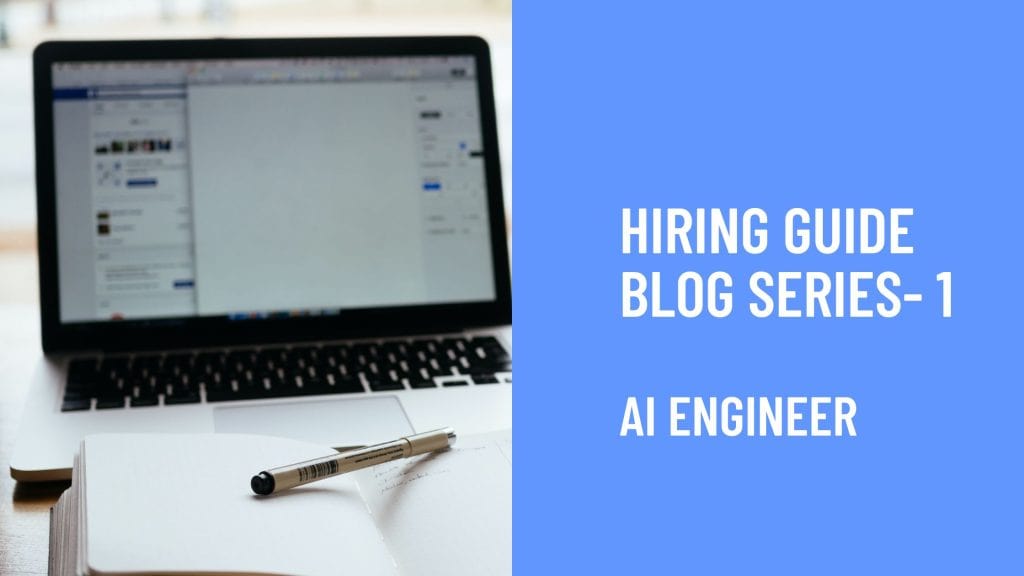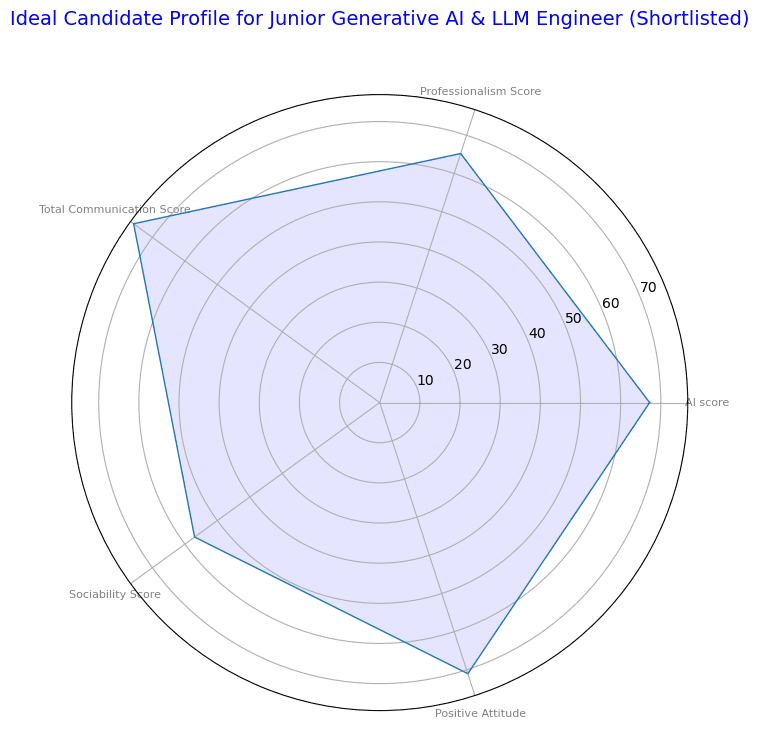The field of Generative AI and Large Language Models (LLMs) is rapidly advancing, bringing transformative changes across various industries. Hiring the right talent to develop and manage these technologies is crucial for companies aiming to stay competitive. This guide provides a comprehensive guide on how to hire a Generative AI and LLM Engineer, outlining the role, necessary skills, sample interview questions, best practices for hiring, and an ideal candidate profile.
Defining the Role of a Generative AI and LLM Engineer
A Generative AI and LLM Engineer is responsible for designing, developing, and implementing AI models that can generate human-like text and other creative content. These engineers work with large datasets and complex algorithms to create models that understand and generate language at a high level.
Responsibilities:
– Developing and fine-tuning LLMs such as GPT, BERT, or custom models.
– Implementing generative models for various applications, including text generation, summarization, translation, and content creation.
– Collaborating with data scientists, product managers, and other stakeholders to integrate AI solutions into products and services.
– Monitoring and optimizing model performance and efficiency.
– Staying updated with the latest research and advancements in AI and LLMs.
Key Skills and Qualifications Required
Technical Skills:
– Programming Languages: Expertise in Python, with experience in R, Java, or C++ being a plus.
– Machine Learning Frameworks: Proficiency in TensorFlow, PyTorch, Hugging Face Transformers, or similar.
– NLP Techniques: Strong understanding of natural language processing techniques and libraries.
– Data Handling: Experience with large datasets, data preprocessing, and data augmentation techniques.
– Algorithm Development: Ability to develop, fine-tune, and deploy LLMs and generative models.
– Cloud Services: Familiarity with cloud platforms such as AWS, Google Cloud, or Azure for model deployment.
Soft Skills:
– Analytical Thinking: Strong problem-solving and analytical skills to tackle complex AI challenges.
– Collaboration: Effective communication and teamwork skills to work with cross-functional teams.
– Adaptability: Willingness to continuously learn and adapt to new AI technologies and methodologies.
Educational Qualifications:
– Bachelor’s or Master’s degree in Computer Science, Engineering, Mathematics, or a related field.
– Relevant certifications or coursework in AI, machine learning, and NLP.
Sample Interview Questions
Technical Questions:
- Model Design: “Can you describe the architecture of a transformer model and explain how it works?”
- NLP Experience: “Discuss a project where you implemented an LLM. What were the challenges, and how did you overcome them?”
- Programming: “Write a Python script to preprocess text data for training an LLM.”
- Algorithm Understanding: “Explain the difference between fine-tuning and transfer learning in the context of LLMs.”
Behavioral Questions:
- Problem-Solving: “Describe a time when you faced a significant technical challenge. How did you resolve it?”
- Team Collaboration: “Can you provide an example of how you worked with a team to implement an AI solution?”
- Learning and Adaptation: “Give an example of a new AI technology or tool you learned recently. How did you go about it?”
Situational Questions:
- Project Management: “How would you handle a situation where your LLM’s performance in production is not meeting expectations?”
- Innovation: “Suppose you have unlimited resources. What innovative AI project would you undertake to add value to our company?”
Ideal Candidate Profile
Summary:
The ideal candidate for a Generative AI and LLM Engineer position is a highly skilled professional with a strong foundation in machine learning, NLP, and programming. They are innovative problem-solvers with a keen understanding of the latest AI technologies and trends.
Characteristics:
– Technical Proficiency: Demonstrates expertise in relevant programming languages, machine learning frameworks, and NLP techniques.
– Analytical Thinking: Exhibits strong analytical and problem-solving skills, with the ability to tackle complex AI challenges.
– Collaborative Spirit: Proven ability to work effectively in teams, communicating complex ideas clearly and contributing to a collaborative environment.
– Continuous Learner: Shows a commitment to continuous learning and professional development in the field of AI.
– Ethical Considerations: Understands and applies ethical principles in the development and deployment of AI systems.
Best Practices for Hiring
- Define Clear Objectives:
– Clearly outline the role, responsibilities, and expectations for the Generative AI and LLM Engineer position. Ensure that job descriptions are precise and highlight the skills and qualifications required.
- Utilize Structured Interviews:
– Use structured interviews to maintain consistency and fairness. Prepare standardized questions and a scoring system to evaluate candidates objectively.
- Technical Assessments:
– Incorporate coding tests and technical assessments that focus on relevant skills such as programming, model development, and data handling. These assessments can provide insights into the candidate’s practical abilities.
- Panel Interviews:
– Conduct panel interviews with multiple interviewers to gather diverse perspectives and reduce individual biases. Include team members from different departments to assess cultural fit and collaboration skills.
- Cultural Fit:
– Assess the candidate’s cultural fit within your organization. Evaluate their alignment with company values, team dynamics, and their ability to adapt to the company’s work environment.
- Feedback and Continuous Improvement:
– Gather feedback from interviewers and candidates to continuously improve the hiring process. Regularly review and update interview questions, assessment criteria, and evaluation methods.
—
Conclusion
Hiring the right Generative AI and LLM Engineer is crucial for leveraging advanced AI technologies effectively within an organization. By defining the role clearly, identifying the necessary skills and qualifications, utilizing structured interviews, and following best practices, companies can streamline the hiring process and ensure they select the best candidates. This guide provides a comprehensive way to assist organizations in their search for top AI talent, ultimately contributing to their success in the AI-driven landscape.
Also Read:
Introduction to the Series: The Hiring Guide Using AI Interviews
Hiring Guide: How to hire a Data Scientist
Hiring Guide: How to hire a Technical Content Writer
Hiring Guide: How to hire a Software Engineer
Hiring Guide: How to hire a Technical Recruiter
Hiring Guide How to hire a QA Automation Engineer
—
By following the guidelines and utilizing the tools provided in this guide, organizations can enhance their recruitment strategies, ensuring they attract and retain the most capable Generative AI and LLM engineers.
Interviewer.AI is a technology platform purposely built to support Recruiters and HR teams in finding top talent for their companies. We also work with universities to help them with admissions and coaching, helping them use technology to solve for talent and training. Our mission is to make hiring equitable, explainable, and efficient. to screen in advance and shortlist the candidates that meet the criteria set.
Learn more about how Interviewer.AI can help your business. Schedule a demo today!
Srividya Gopani is the Co-founder, Chief Marketing and Product Officer at Interviewer.AI. She enjoys working on technology which is central to this role as the driver for marketing and product for Interviewer.AI.







